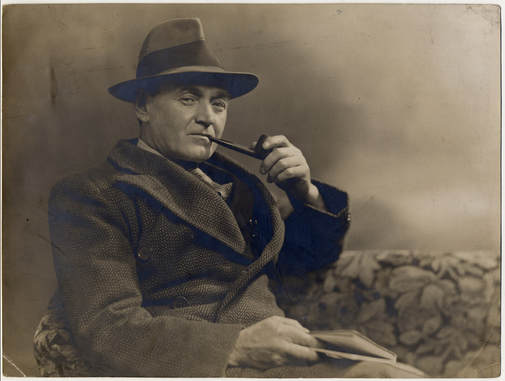
Thomas Carnduff - Songs of the Shipyard
Born in 1886, Thomas Carnduff did many unskilled jobs in in his life including working in the Belfast Shipyard, which provided inspiration for his many poems and earned him the nickname, The Shipyard Poet. His lyrical writing reflects his love of Belfast and its people.
We set a number of Carnduff’s poems to music, and performed them with Contact Singers Choir, brass musicians from The Ulster Orchestra, and narration by Sam and Joan McCready at St. Patrick’s Church, Ballymacarrett as part of the Eastside Arts Festival.
Thomas Carnduff is a pivotal-and paradoxical-figure in Northern Irish letters. A proud Presbyterian steeped in the lore and practice of Orangeism, he recognised the cultural unity of Ireland; a pragmatic socialist, he was also a Utopian dreamer, looking with a sceptically cold eye on the Northern Irish Labour movement; an indefatigable realist in regards to the philistinism of the north, he was a romantic about his beloved city, Belfast.
Yet for more than his political and cultural stances, Carnduff was famed as a poet and dramatist whose work gave voice to a section rarely heard in literary and cultural forums of mid-century Ireland-the urban working-class. His first collection of poetry Songs from the Shipyards marked a northern literary first. His major play, Workers, was premiered at the Abbey Theatre, Dublin. The historical drama Castlereagh demonstrated his paradoxical affection for both the Empire and 1798 republicanism. As well as being a poet and playwright, Carnduff was also a much-loved chronicler of his native city whose pieces brought to life turn-of-the-century Belfast. Lagan Press anthologised his work in 1994 with Life & Writings, edited by John Gray.
Born in 1886, Thomas Carnduff did many unskilled jobs in in his life including working in the Belfast Shipyard, which provided inspiration for his many poems and earned him the nickname, The Shipyard Poet. His lyrical writing reflects his love of Belfast and its people.
We set a number of Carnduff’s poems to music, and performed them with Contact Singers Choir, brass musicians from The Ulster Orchestra, and narration by Sam and Joan McCready at St. Patrick’s Church, Ballymacarrett as part of the Eastside Arts Festival.
Thomas Carnduff is a pivotal-and paradoxical-figure in Northern Irish letters. A proud Presbyterian steeped in the lore and practice of Orangeism, he recognised the cultural unity of Ireland; a pragmatic socialist, he was also a Utopian dreamer, looking with a sceptically cold eye on the Northern Irish Labour movement; an indefatigable realist in regards to the philistinism of the north, he was a romantic about his beloved city, Belfast.
Yet for more than his political and cultural stances, Carnduff was famed as a poet and dramatist whose work gave voice to a section rarely heard in literary and cultural forums of mid-century Ireland-the urban working-class. His first collection of poetry Songs from the Shipyards marked a northern literary first. His major play, Workers, was premiered at the Abbey Theatre, Dublin. The historical drama Castlereagh demonstrated his paradoxical affection for both the Empire and 1798 republicanism. As well as being a poet and playwright, Carnduff was also a much-loved chronicler of his native city whose pieces brought to life turn-of-the-century Belfast. Lagan Press anthologised his work in 1994 with Life & Writings, edited by John Gray.